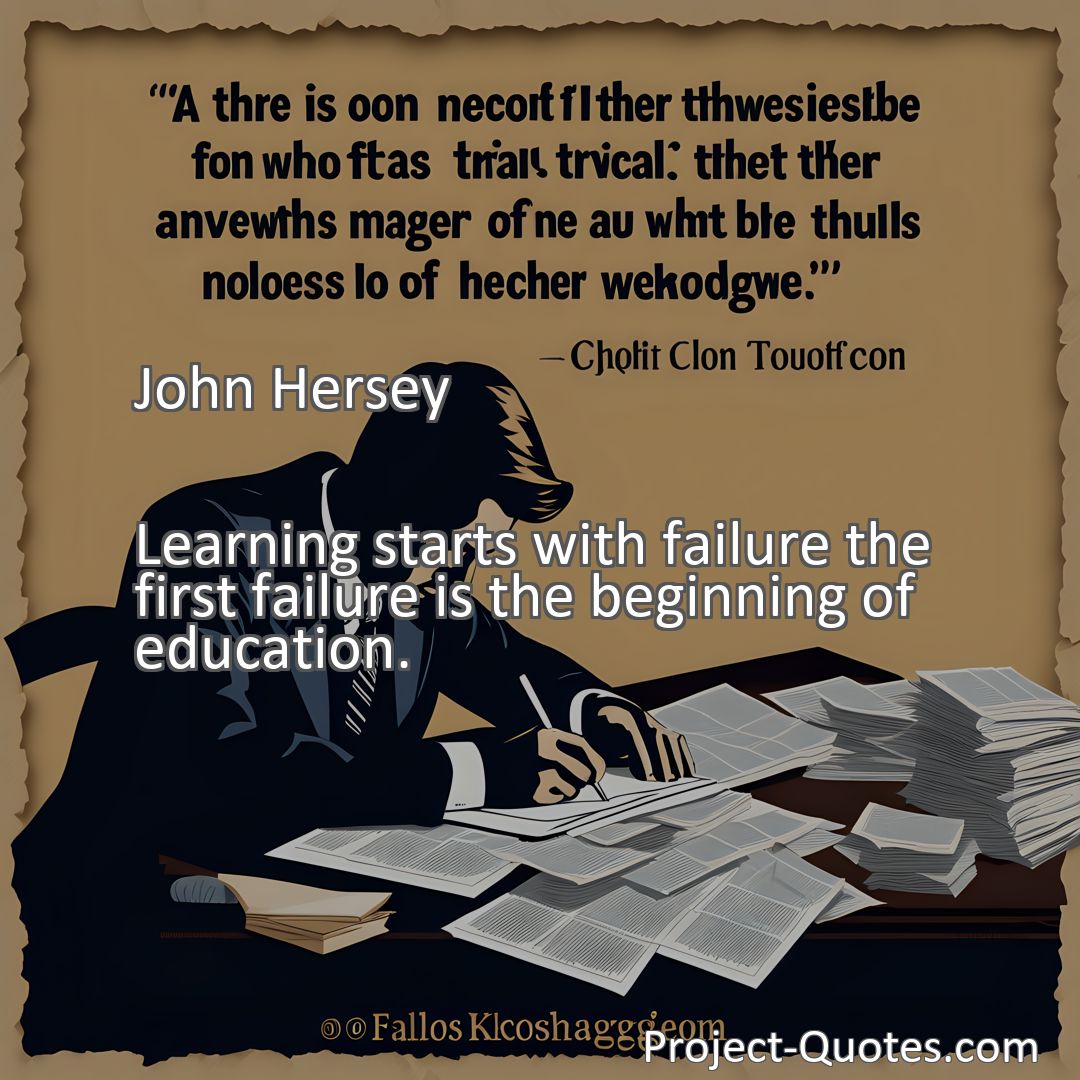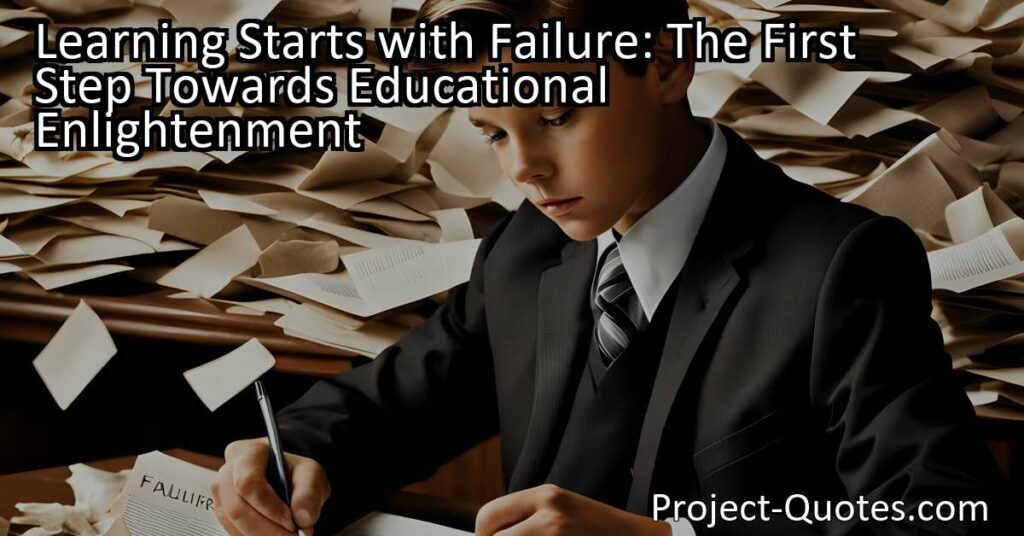Learning starts with failure the first failure is the beginning of education.
John Hersey
Learning Starts with Failure: The First Step Towards Educational EnlightenmentFailure is not something to be feared, but rather embraced as the beginning of education. Author John Hersey’s quote encourages us to view failure as the first step towards educational enlightenment. Failure teaches us valuable lessons, promotes resilience, cultivates creativity, and helps develop a growth mindset, ultimately unlocking our full potential for learning and self-improvement. So, let go of the fear of failure and embark on a journey towards educational enlightenment.
Table of Contents
Meaning of Quote – Learning starts with failure the first failure is the beginning of education.
Learning is a wonderful journey that begins with failure. As humans, we often fear failure and view it as something negative. However, author John Hersey reminds us that failure is not an end, but rather, the beginning of education. In his words, “Learning starts with failure; the first failure is the beginning of education.”
So, what exactly does Hersey mean by this quote? How can failure possibly be the starting point for learning? To understand this concept, let’s delve deeper into the idea of failure and how it plays a crucial role in our growth and development.
Imagine a scenario where you attempt something for the first time, whether it’s baking a cake or solving a complex math problem. As a novice, it’s highly likely that you may not achieve your desired outcome. You might burn the cake or make mistakes in your calculations. At this point, many people become discouraged, feeling defeated by their initial failure. However, it is in this moment that the true power of failure is revealed.
Failure teaches us valuable lessons. It shows us what went wrong, highlights our weaknesses, and exposes areas that need improvement. It provides an opportunity for self-reflection and growth. When we analyze our failures, we gain insights into our mistakes, helping us understand what we need to do differently next time. This process of learning from failure paves the way for future successes.
One of the greatest examples of learning from failure can be seen in the field of science. Scientists conduct experiments, make hypotheses, and gather data to support their claims. However, in many cases, their experiments do not yield the expected results. These failures lead scientists to question their initial assumptions and reevaluate their approach. Through this process of trial and error, they learn new things about the world and make groundbreaking discoveries. Without failure, scientific progress would stagnate.
Moreover, failure promotes perseverance and resilience. When we experience setbacks, we are faced with a choice: give up or keep going. Embracing failure means acknowledging that we are not perfect and that success takes time and effort. It teaches us resilience, the ability to bounce back from adversity, and motivates us to try again. With each failure, we become more determined and better equipped to overcome obstacles in the future.
Failure also encourages creativity and innovation. When our plans fail, our minds are forced to think outside the box and find alternative solutions. This often leads to unexpected and groundbreaking ideas. Some of the most influential inventions and discoveries in history were the result of failed attempts and mistakes. For instance, the discovery of penicillin by Alexander Fleming was a serendipitous accident, born out of a mold-contaminated petri dish. This accidental failure revolutionized the field of medicine and saved countless lives.
Failure also helps us develop a growth mindset. A growth mindset is the belief that we can improve through dedication and hard work. Those with a growth mindset embrace challenges, view failure as an opportunity for growth, and persist even when faced with hurdles. On the other hand, individuals with a fixed mindset believe that our abilities are set in stone and that failure is a reflection of their inherent inadequacy. By adopting a growth mindset, we can overcome self-limiting beliefs and unlock our full potential.
It is important to note that failure is not synonymous with defeat. Failure is a natural part of life and an essential component of the learning process. Education systems often place too much emphasis on achieving perfect scores or getting everything right the first time, which can discourage students from taking risks and exploring new ideas. By reframing failure as a stepping stone to success, we can create a more inclusive and effective learning environment.
In conclusion, John Hersey’s quote, “Learning starts with failure; the first failure is the beginning of education,” serves as a reminder that failure is an integral part of the learning process. It teaches us valuable lessons, promotes perseverance and resilience, cultivates creativity, and helps us develop a growth mindset. By embracing failure and viewing it as an opportunity for growth, we can unlock our full potential and embark on a lifelong journey of learning and self-improvement. So, don’t be afraid to fail, for it is the first step towards educational enlightenment.
I hope this quote inspired image brings you hope and peace. Share it with someone who needs it today!


